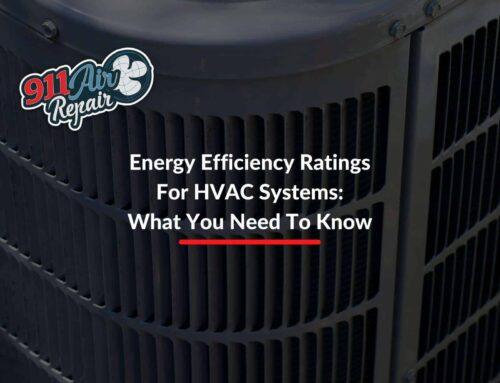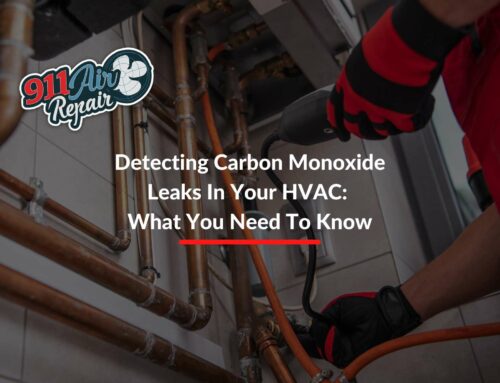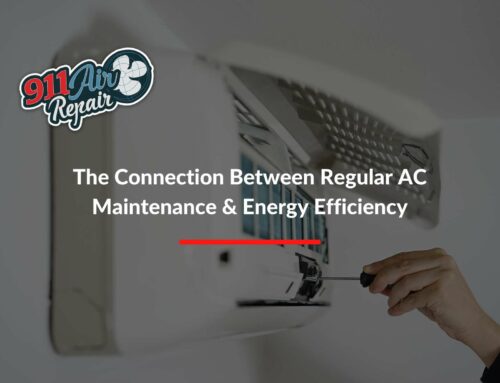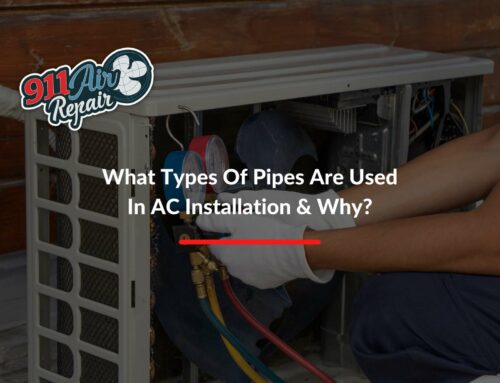Top 5 Reasons Your AC Capacitor Fails: Expert Tips To Prevent Costly Repairs
Overcoming the summer's heat is part of living in the desert. Luckily, air conditioners are reliable as they are built with a few parts.
Air conditioners can last almost a lifetime and require little maintenance, but if it suddenly refuses to start, the problem may be its capacitor. Though they are small, they play a big part in your AC's daily functioning.
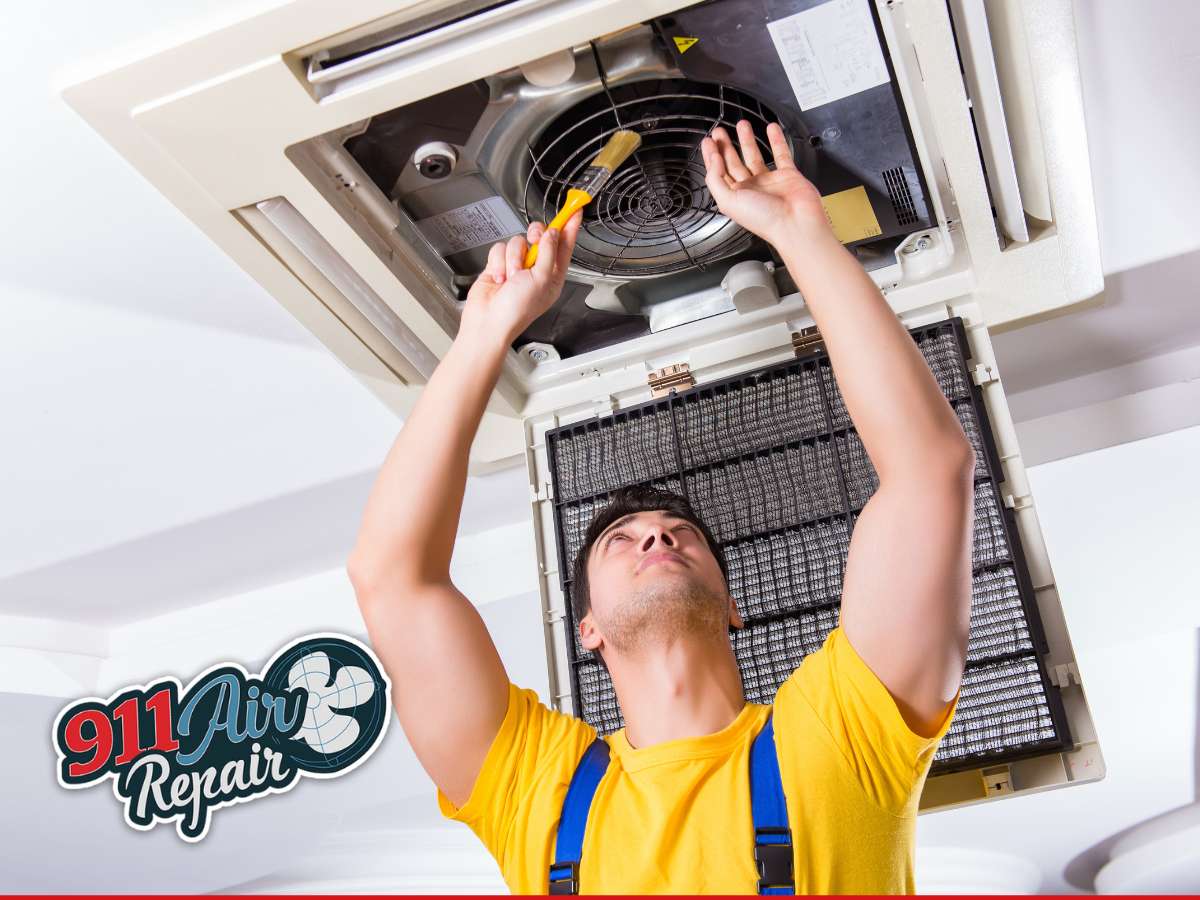
What Is a Capacitor? Understanding Its Role & Importance
A capacitor is a device composed of two metal conductors that are separated by an insulating material. On an AC, they usually look like large cylindrical batteries with two or three posts sticking out of the top.
The main function it has is to store electrons to provide start-up energy for your air conditioning. Electricity runs through them, building up a charge that swaps electrons between the two conductive plates inside.
Air conditioners need more than your house's energy to start, so the capacitor is added to the circuit to give an electrical jumpstart when the system draws power from the electrical grid. Both electrical sources provide the right amount of energy to your AC. The capacitor's function is over until an air conditioning cycle is complete. Then, the compressor must start up again.
Your air conditioner may contain several different capacitors, including the compressor motor run capacitor, the outside fan motor run capacitor, the indoor fan motor run capacitor, and the start capacitor. The compressor that usually fails is the compressor motor run capacitor. It has a big job in your AC system as it is a dual capacitor with three terminals instead of two.
Common Causes Of Capacitor Failure & Prevention Tips
Capacitors fail often as they do a tough job. These are some of the factors that may be affecting the lifespan of AC capacitors:
- Heat exposure: Heat may be one of the most damaging elements for air conditioner capacitors. Exposing these units to high heat for extended periods shortens their lives and can cause significant damage to your unit. Make sure you shade your air conditioner. Keep it clean and the air circulating to maximize your capacitor's lifespan.
- Voltage rating: All capacitors have a voltage rating, which informs air conditioner technicians exactly which capacitor matches which air conditioner. Sometimes homeowners may try to cut costs by replacing the AC capacitors themselves without understanding how to choose the right one. An undersized capacitor won't hurt your air conditioner but will significantly shorten the capacitor's life. The ideal situation will be to call a Maricopa AC contractor.
- Age: Capacitors have a limited life span. Most are designed to last approximately 20 years, but many factors can cause them to wear out more quickly. If your air conditioner cycles are much more rapidly than average. In that case, your capacitor is undersized (as mentioned above) or built from problematic parts, and the estimated life span may be greatly reduced.
How Do You Know If Your AC Needs a New Capacitor?
These are some signs that indicate you have a ruined AC capacitor and some tips on addressing the issue:
- Your Air Conditioner Is Not Blowing Cold Air: Try resetting your system by turning it off and on again. Contact an AC repair to diagnose and solve the problem for optimal cooling performance.
- High Energy Bills: A defective capacitor can cause your AC to work harder than necessary, increasing electricity consumption and higher utility costs.
- Humming Noise: A humming sound or your AC taking minutes to start, may show the capacitor is failing.
- Your HVAC System Is Old: Time can take a toll on your AC unit, leading to performance issues. Consider contacting a Maricopa HVAC contractor to inspect your system.
- Your AC Will Turn Off On Its Own: A problematic capacitor can disrupt its performance and efficiency.
- AC Won't Turn On Immediately Or Won't Turn On At All: In that case, it's time to have your capacitor inspected and potentially replaced by an AC contractor.
How To Manage AC Capacitor Problems: DIY Tips & Professional Advice
If you have a problem with your AC capacitor, we recommend that you have a skilled HVAC professional to diagnose and fix it. Despite this, you can do some things to manage capacitor issues until a professional arrives.
- Turn off the power to ensure safety from injuries or electrical shocks.
- Check For Any Sign Of Damage: Look for signs of bulges or cracks.
- Test Your Capacitor: Use a multimeter to test if the AC capacitor is working accordingly.
- Clean Your AC Unit: Scraps and dust can accumulate on the capacitor, reducing its efficiency and causing damage in the long run. Clean your unit regularly to prevent similar problems.
- Schedule Routine Maintenance: Annual maintenance by a skilled HVAC professional can help avoid AC capacitor problems.
Ensuring Your AC Capacitor's Longevity & Performance
A capacitor is a crucial component of your air conditioning system. If you suspect your AC's capacitor is not working properly, having it inspected and replaced as soon as possible is important to prevent further damage and ensure efficient operation.
If your air conditioner is refusing to start, running with little enthusiasm, making weird noises, or just isn't cooling right, contact us at 911 Air Repair. Our Maricopa AC Contractors can handle any problem your air conditioner can throw at them.
20625 N, Ancon Ave
Maricopa, AZ 85139
Phone: (480)-360-1234
Email: support@911-ac.com


